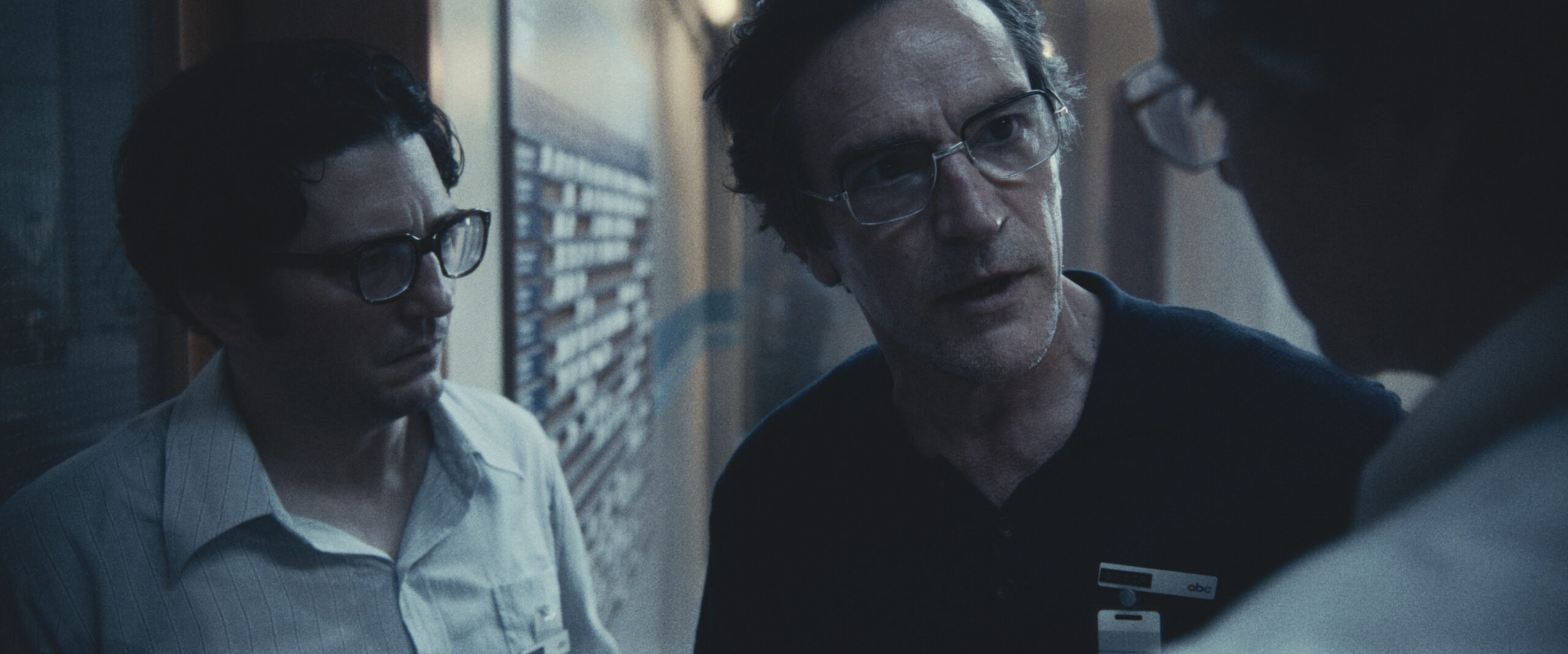
Ben Chaplin wants to surprise you.
It’s a simple charge, but it’s what the stage and screen actor of more than 30 years has in mind when he takes a new role.
“That’s always my goal: to do something that surprises them, that makes them feel,” the 55-year-old British performer says of the audience. “It’s really about making it so real, so heartfelt, that they’re surprised by the level of that [feeling].”
I spoke with Chaplin while he was in town last November to receive the Excellence in Acting Award at the 47th Denver Film Festival — “Get this,” he told me, “I get to pick up an ensemble award, alone!” — for his portrayal of Marvin Bader in the new drama based on real events, September 5.
“I was surprised by how relevant it felt,” Chaplin recounts when he first read the script by Moritz Binder, Alex David and Tim Fehlbaum — who also directs. That was in 2022.
“But the first time I watched it [2024], I sat there for about five minutes and thought: ‘This is really relevant,’” he continues. “It doesn’t answer any questions because they may be unanswerable. But they’re certainly worth considering.”
‘The moral conscience of the film’
Set on the most notorious date of the 1972 Summer Olympics in Munich, Germany, September 5 recounts the Israeli athletes taken hostage by the Palestinian militant group Black September from the perspective of the ABC Sports control room broadcasting the crisis live. The three in charge: Roone Arledge (Peter Sarsgaard), Geoffrey Mason (John Magaro) and Bader (Chaplin).

“They’re doing the only thing they know how to do,” Chaplin says of the TV crew thrown into international affairs without warning. “And that’s what I find slightly moving about the film is that human beings do the best they can. ... Making it work with groundbreaking technology.”
Confined almost exclusively to the ABC Sports broadcast room and unfolding in what feels like real-time, the players of September 5 eschew personal and political alliances in the name of journalistic objectivity. In doing so, a series of choices create lasting effects.
“He was the troubleshooter,” Chaplin says of Bader. “His job was to troubleshoot, see all problems, every possible problem under the sun. ... How to plan for, how to mitigate it.”
Chaplin says that because of this, many have called Bader “the moral conscience of the film,” and it’s easy to see why. Bader was a legend in sports broadcasting — “credited with inventing the accreditation system, globally, for sports broadcasters, had friends all over the world — friends, but also, ins everywhere,” Chaplin explains. “Obviously, a stickler for detail.”
Making audiences uncomfortable
As September 5 shows, Bader was also placed in an unenviable situation. The Germans running the Olympics were skittish that anything happening to Jewish athletes on German soil would dredge up old memories, while Roone and Geoffrey hang on to the hostage story a beat too long in hopes of seeing the job through. All the while, human lives are at stake, and everyone is desperate for information and a speedy resolution.
“What the film is really about is journalism,” Chaplin says. “I think at the root of the film is what responsibility we have in covering these things.”
Specifically, rolling news coverage of tragic events.
“Like they were in that moment, we are in this moment,” Chaplin says. “Tech is way ahead of our knowledge and our ability to deal with the unintended consequences.”
Running on pure adrenaline and anchored by an outstanding ensemble that includes Leonie Benesch, Benjamin Walker and Zinedine Soualem, September 5 is a gripping piece of work that, like Chaplin says, offers many questions but few answers. For some audiences, it will make for a very uncomfortable experience. And that’s partly Chaplin’s hope.
“Some people argue that you don’t want to make them uncomfortable,” he says of the audience. “I don’t mind making them uncomfortable. That’s my job, I feel. I don’t want to make them feel awful. But: ‘That’s not comfortable to watch’ is fine with me. As long as it’s about feeling and empathy, you know?”
September 5 opens in wide release Jan. 17.
